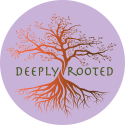Are the Symptoms of Trauma Affecting Your Ability to Thrive?
More than 70% of adults in the U.S. have experienced some type of traumatic event in their lifetime. Nearly 25% of those people meet the criteria for PTSD. You’re not alone.
Many Americans are living with the physical and psychological affects of trauma. Common symptom of trauma that you may experience include but are not limited to:
- agitation
- irritability
- hostility / angry outbursts
- hyper-vigilance / constantly alert
- self-destructive behavior
- social isolation
- flashbacks and nightmares
- frequent fear
- severe anxiety
- lack of motivation
- loss of interest or pleasure in activities
- guilt
- insomnia
- nightmares
- difficulty forming meaningful and lasting relationships
- unwanted thoughts
You can find relief from trauma symptoms. When combined with therapy, trauma-conscious yoga can equip you with tools that decrease or eliminate symptoms.
What is Trauma-Conscious Yoga?
Trauma-conscious yoga (also called trauma-informed or trauma-sensitive yoga) uses practices from yoga therapy and somatic psychotherapy. Both evidence-based, psychotherapeutic methods are designed to empower survivors.
Through trauma-informed classes, you may find your voice, reconnect with your body, and discover a road map towards transformation and freedom.
How is Trauma-Conscious Yoga Different Than Other Methodologies?
In a trauma-informed yoga class, the teacher is specially certified to assist students who are recovering from trauma. The teacher mindfully resists re-traumatizing students. By avoiding actions, phrases, conditions, and situations that are common triggers, trauma-conscious teachers create a safe environment for survivors.
Trauma-sensitive teachers help students learn and practice self-regulation. (Self-regulation is the control of your behavior, emotions, and thoughts.) Teachers guide students through exercises that help to form new mind-body connections that are healthy and empowering.
All yoga teachers are not required to receive trauma-conscious training. That is why it is important to find trauma-sensitive care. The founder of Deeply Rooted Wellness + Yoga, Erica Rascon, is certified in the Trauma-Conscious Yoga Method℠.
Is Trauma-Conscious Yoga a Substitute for Therapy?
No. While practicing yoga, it is important to continue work with your clinician (therapist, psychologist, psychiatrist, etc.). Any yoga practice is a supplement to your care plan.
Yoga can be a transformative addition! Unlike conventional talk therapy, yoga involves the mind, breath, and body. Your sense of touch, sight, hearing, and smell are involved in the recovery process.
Before beginning a series of trauma-conscious yoga classes, it is important to take the basic steps towards mental wellness. If you are not in the care of a mental health professional, you may be missing out on vital tools for your health and safety. Please visit GoodTherapy.org or Psychology Today to find a clinician near you.
Stay Safe. Speak Up!
No two students are alike. As such, even a trauma-conscious teacher cannot avoid all possible triggers. It is important to communicate with your yoga teacher whenever you feel uncomfortable, unsafe, or pose a risk to yourself or others.
When something doesn’t feel right and you speak up, you are helping to define your safe space. That’s so important! You may also help your teacher create a more conscious healing space for other people as well. Your feedback matters.
Where Can I Find Trauma-Conscious Yoga Near Me?
There are 3 ways to explore trauma-informed yoga near you. Deeply Rooted Wellness + Yoga offers private, trauma-conscious classes online. You will work one-on-one with a certified teacher via FaceTime or Zoom. This offers the most flexible scheduling.
If you live in north metro Atlanta, there are two additional options. You may choose to take a one-on-one class in the privacy of your home or a nearby park (weather permitting). We can pair you with a teacher to work with you live, in person.
You may also choose to visit our cozy studio in Cumming, GA. As of fall/winter 2019, availability is limited.
Email us for more information or to get started. You may also call 678.631.7808.

